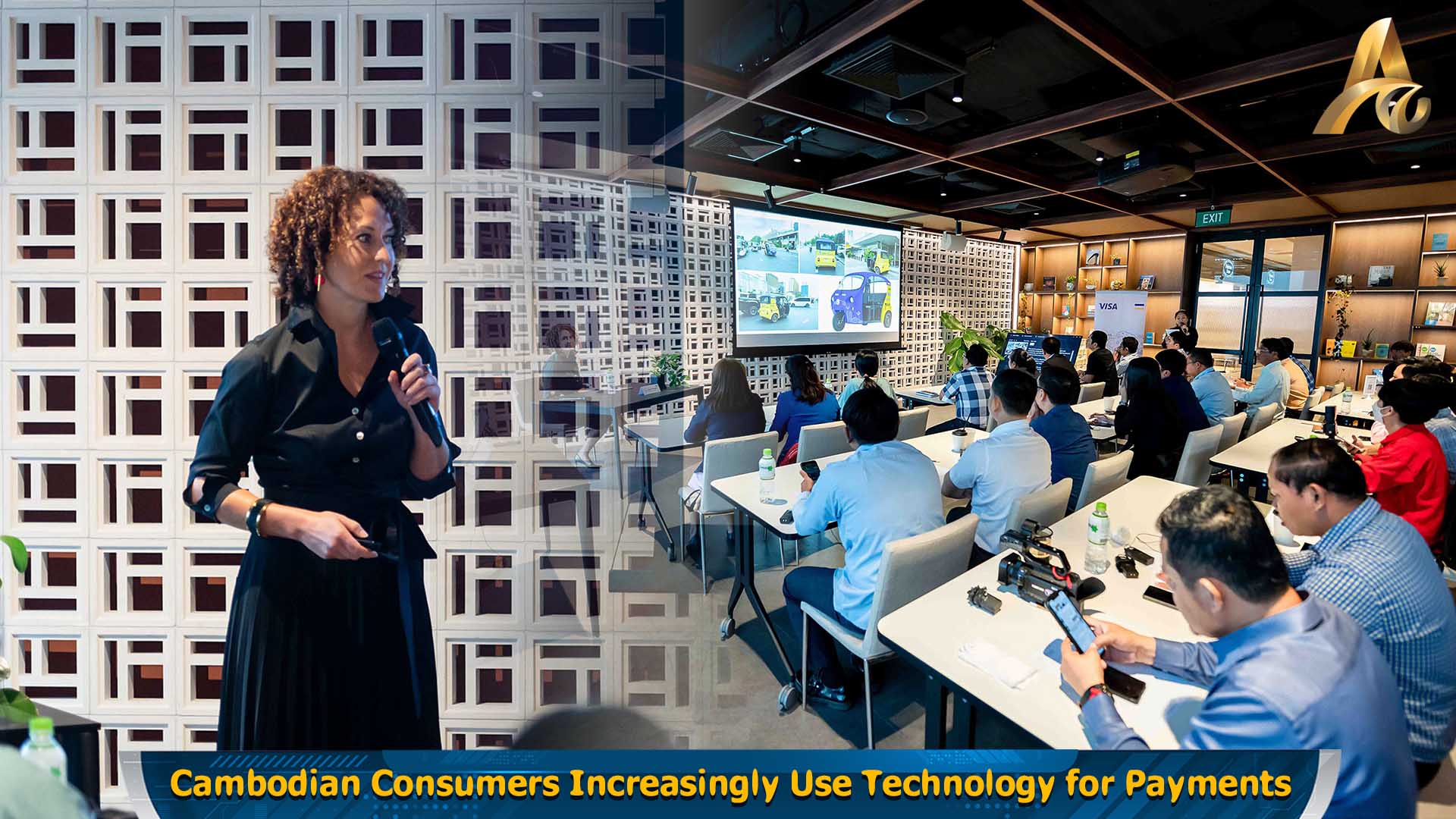PHNOM PENH: Visa, the world’s leader in digital payments, today released findings from its latest Visa Consumer Payment Attitudes Study showing Cambodians are embracing new forms of cashless payment while also continuing to use cash.
While cash usage dropped during the Covid-19 pandemic, consumers seem to be returning to using it for payments due to decreasing concern over spreading the virus through the handling of bills. With 86% of those surveyed in 2022 saying they use cash for payments, it remains a pillar of Cambodia’s payment ecosystem.
“Surprisingly, Gen Z respondents reported the highest preference for cash usage among any group,” said Ms. Ivana Tranchini, Visa Country Manager for Cambodia. QR codes are the second favorite payment option with 21% of those surveyed saying they prefer it. Tranchini continued, “This reliance on cash among the youth, and the erroneous perception that cash is almost as secure as paying by QR, underscores the timeliness of Visa’s recent initiatives with its Cambodian partners to promote financial literacy.”
QR code usage continues to grow annually with 68% of consumers said they use QR for payments, up from 36% in 2021 and 12% in 2020. While not everyone is using technology for payments and purchases, the interest is there. 90% of survey respondents expressed interest in paying by QR codes and interest in contactless cards showed an increase as well. This increase shows that the benefits of digital-first payment methods have become a permanent feature of Cambodian purchasing habits.
In fact, many consumers say they expect the Kingdom to transform into a cashless society this decade. 46% of survey respondents said they foresee Cambodia becoming a cashless economy by 2030 at the latest. More Cambodians are also starting to experiment with going cashless. In 2022, 32% said they actually tried going cashless. Of those, 52% went cashless for at least a week.
The survey demonstrates the key role small and medium-sized retailers (SMEs) play in consumer payment habits. Of those that shop at SMEs weekly, 66% pay in cash while just 11% pay by QR codes. This data suggests a huge opportunity in the expansion of cashless payment options at SMEs.
“In addition, the Cambodian government has placed a strong emphasis on SME digitalization, and Visa has supported this push with its recent partnership with The Asia Foundation and the Ministry of Women’s Affairs of Cambodia for female entrepreneurs. Visa has also contributed to the digitalization of SMEs by investing heavily to promote digital commerce platforms like delivery and ride-hailing apps,” shared Tranchini.
The Covid-19 pandemic saw a massive increase in home delivery. Of the 52% who currently use home delivery services, 37% said they used them for the first time during the pandemic.
“At Visa, we are well positioned to support our local partners with this kind of market insight while providing Cambodians the most convenient, reliable and secure payment network, one that enables individuals, businesses and economies to thrive,” said Tranchini.
Cambodians were naturally eager to travel once COVID-19 restrictions were lifted, with one quarter of survey respondents saying they travelled in 2022, mostly on domestic leisure trips, while more than a third of consumers expect to travel in the next 12 months, either domestically or overseas. Cambodians are also using new tools to pay for these trips, with survey respondents ranking travel as the top category for installment payment plans such as Buy Now, Pay Later (BNPL).
“Cambodians are leveraging new money management tools, such as BNPL and credit cards, as well as protecting themselves for the future by taking up insurance,” said Tranchini. “Banks should be thinking about how they can bring these kinds of propositions into their mobile banking environments to help consumers maintain positive financial behaviors.”



























